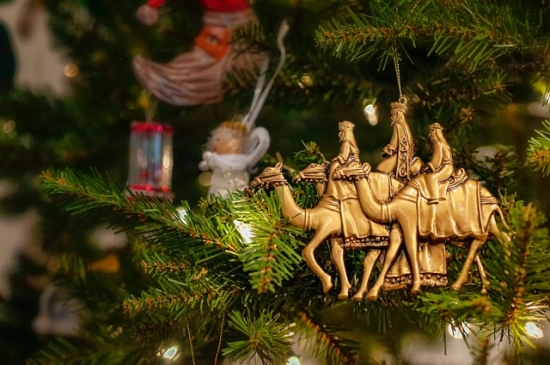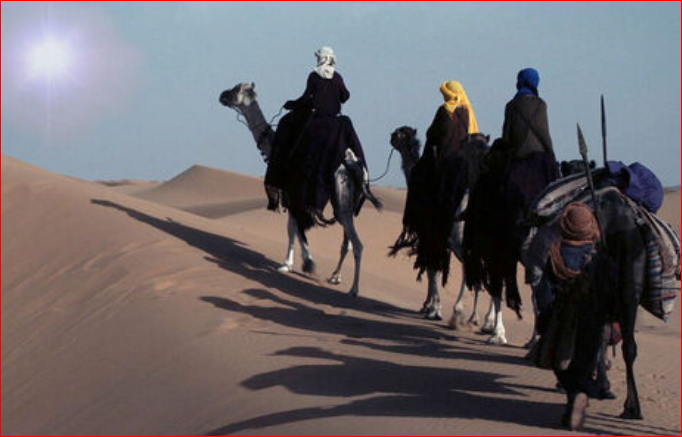3048. 'The servant took ten camels from his master's camels, and went' means [Divine] general facts in the natural man. This is clear from the meaning of 'the servant' here as the natural man, dealt with above in 3019, 3020; from the meaning of 'ten' as remnants, which are the goods and truths stored away in a person by the Lord, see 468, 530, 560, 561, 660, 661, 1050, 1906, 2284 (though when 'ten' or remnants is used in reference to the Lord, the Divine things that the Lord acquired to Himself are meant, 1738, 1906); and from the meaning of 'camels' as general facts which, being Divine or things acquired by the Lord, are said to be 'ten' in number, and also to be 'camels from his master's camels'. The words 'he went' mean the introduction which was effected by means of those facts, which is dealt with in this chapter. The whole subject is the process by which truth was joined to good in the Lord's Divine Rational, the first thing to be described in this line of thought being the nature of the process of introduction, referred to in 3012, 3013. The present verse describes how the Lord separated those things in the natural man that came from Himself, that is, that were Divine, from those that came from the mother. Those that came from Himself, or were Divine, are the things through which the introduction was effected, and they are meant here by 'the ten camels from his master's camels'. This explains why much reference is made in subsequent verses to camels, such as that he made the camels kneel down outside the city, verse 11; that Rebekah also gave the camels a drink, verses 14, 19-20; that they were led into the house, and given straw and fodder, verses 31-32; and further on, that Rebekah and her maids rode on the camels, verse 61; and that Isaac saw the camels coming, and that when Rebekah saw Isaac she dropped down from the camel, verses 63-64. The reason they are mentioned so many times lies in the internal sense in which they mean the general facts that are present in the natural man and from which comes the affection for truth that had to be introduced to the affection for good within the rational, this being effected in the ordinary way, as shown above. For the rational as regards truth cannot possibly be born and perfected without facts and cognitions.
[2] That 'camels' means general facts is clear from other places in the Word where they are mentioned, as in Isaiah,
A prophecy of the beasts of the south. In the land of distress and anguish are the young lion and the old lion from them, the viper and the flying fiery-serpent. They carry their wealth on the shoulders of young asses, and their treasures on the backs of camels, to a people that do not profit them. And Egypt's help will be in vain and to no advantage. Isaiah 30:6-7.
'The beasts of the south' stands for those who possess cognitions or the light of cognitions but lead evil lives. 'Carrying their wealth on the shoulders of young asses' stands for the cognitions which belong to their rational, 'a young ass' being rational truth, see 2781. 'Their treasures on the backs of camels' stands for the cognitions which belong to their natural, 'the backs of camels' being the natural, 'camels' themselves the general facts there, 'treasures' the cognitions which they consider to be precious. The words 'Egypt's help will be in vain and to no advantage' mean that to them knowledge is of no use, 'Egypt' being knowledge, see 1164, 1165, 1186, 1462, 2588 (end). It is evident that camels are not meant by 'camels' here because it is said that the young lion and the old lion carry their treasures on the backs of camels. Anyone may see that some arcanum of the Church is meant by this description.
[3] In the same prophet,
The prophecy of the wilderness of the sea. Thus said the Lord, Go, set a watchman to point out what he sees. And he saw a chariot, a pair of horsemen, a chariot of asses, a chariot of camels, and he listened diligently. He answered and said, Fallen, fallen has Babel. Isaiah 21:1, 6-7, 9.
'The wilderness of the sea' stands for the hollowness of knowledge that serves no use. 'A chariot of asses' stands for a mass of specific facts, 'a chariot of camels' for a mass of general facts which are present in the natural man. It is the hollow reasonings found with people meant by Babel which are described in this fashion.
[4] In the same prophet,
Your heart will enlarge itself because the abundance of the sea will be turned to you, the wealth of the nations will come to you. A multitude of camels will cover you, dromedaries of Midian and Ephah, all those from Sheba will come. They will bring gold and frankincense, and will spread abroad the praises of Jehovah. Isaiah 60:5-6.
This refers to the Lord, and to the Divine celestial and spiritual things within His natural. 'The abundance of the sea' stands for a vast quantity of natural truth, 'the wealth of the nations' for a vast quantity of natural good. 'A multitude of camels' stands for general facts in abundance, 'gold and frankincense' for goods and truths which are 'the praises of Jehovah'. 'From Sheba' is from the celestial things of love and faith, see 113, 117, 1171. The queen of Sheba's coming to Solomon in Jerusalem with vast amounts of wealth, with camels carrying spices, and very much gold, and precious stones, 1 Kings 10:1-2, represented the wisdom and intelligence which came to the Lord, who in the internal sense of these verses is meant by Solomon. 'Camels carrying spices, gold, and precious stores' means matters of wisdom and intelligence in the natural man.
[5] In Jeremiah,
To Arabia and to the kingdoms of Hazor which Nebuchadnezzar king of Babel smote: Arise and go up to Arabia, and lay waste the sons of the east. They will take their tents, their curtains, and all their vessels, and they will bear their camels away from them. Their camels will become booty, and the multitude of their flocks booty, and I will scatter them to every wind. Jeremiah 49:28-29, 32.
Here 'Arabia' and 'the kingdoms of Hazor', used in the contrary sense, stand for people who possess cognitions of celestial and spiritual things but whose only use for them is to be considered wise and intelligent in their own eyes and in those of the world. 'The camels that will be borne away from them to become booty and that will be scattered to every wind' means in general the factual knowledge of those people and their cognitions of good and truth, which will begin to be removed from these people in this life through their belief in things of a contrary nature, and in the next life removed altogether.
[6] In Zechariah,
The plague with which Jehovah will smite all the peoples that wage war against Jerusalem: It will be a plague of the horse, the mule, the camel, and the ass, and every beast. Zechariah 14:12, 15.
'A plague of the horse, the mule, the camel, the ass' stands for the removal of the powers of the understanding which follow one another in the same consecutive order, from rational concepts to natural images. What a horse is, see 2761, 2762; a mule, 2781; an ass, 2781. 'Camels' stands for general facts in the natural man. The pestilence in Egypt 'on the cattle in the field, on the horses, on the asses, on the camels, on the herd, and on the flock', Exodus 9:2-3, had a similar meaning.
From all these places it becomes clear that 'camels' in the internal sense of the Word means general facts which belong to the natural man. General facts are those which include within themselves many particular ones, while these include within themselves those that are specific. All these constitute in general the understanding part of the natural man.








